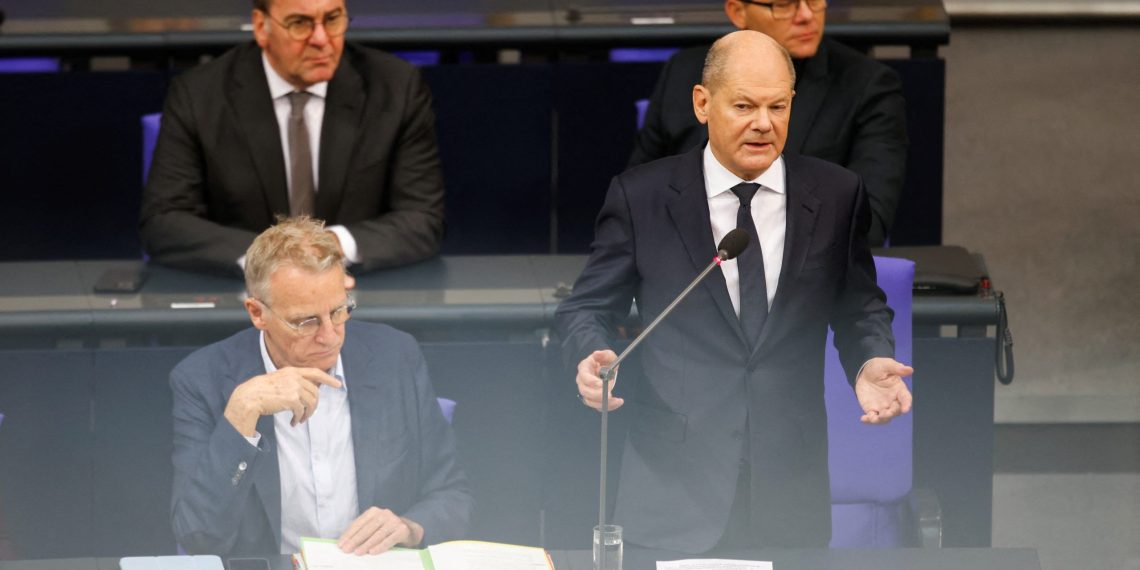Germany is facing a mounting wave of cyber and infrastructure threats, with Chancellor Olaf Scholz warning that the country is under “severe threat” from foreign adversaries, primarily Russia and, at times, China. Addressing lawmakers in the Bundestag on Wednesday, Scholz highlighted recent incidents underscoring the urgency of strengthening Germany’s cybersecurity and national defenses.
“As we all know, the main causes of attacks of this kind that affect our cybersecurity come from Russia,” Scholz stated. “And of course, they also come from China from time to time. And that should not be concealed.”
Baltic Sabotage Raises Alarm
Recent disruptions have included damage to two undersea fiber-optic cables in the Baltic Sea, sparking suspicions of sabotage. These incidents follow a report from German news agency DPA that a Russian vessel allegedly fired signal ammunition at a Bundeswehr helicopter in the Baltic Sea, further escalating tensions in the region.
The attacks coincide with revelations from the United States about an “ongoing” Chinese cyber assault targeting global telecommunications providers. These developments have cast a spotlight on the vulnerabilities of critical infrastructure in NATO-allied countries, including Germany.
Germany’s Response to Escalating Threats
Chancellor Scholz called for intensified efforts to safeguard against these threats. “We have to make a great deal of effort to arm ourselves against such attacks,” he said, emphasizing the need for robust countermeasures from security authorities. Scholz urged these agencies to uncover and prevent further incidents to protect Germany’s infrastructure and citizens.
The German foreign intelligence service has also expressed concerns over Russia’s strategic intentions. Officials warned that Moscow might attempt to exploit NATO’s mutual defense clause, Article 5, by staging limited interventions under the guise of protecting Russian minorities in allied territories. Such actions, they fear, could test NATO’s unity and potentially destabilize the alliance.
Russia-Ukraine Peace Talks Stalled
The cyber and infrastructure threats are unfolding against the backdrop of the ongoing Russia-Ukraine war. Chancellor Scholz reiterated that peace negotiations could not proceed without Ukraine’s direct involvement and approval. “Decisions cannot be made over the head of Ukraine,” Scholz emphasized, adding that Kyiv must lead discussions in consultation with its allies.
Despite Scholz’s diplomatic outreach, including an hour-long phone call with Russian President Vladimir Putin, the Chancellor noted a lack of willingness from Moscow to pursue peace. “The Russian President has not shown that he wants to do anything in the direction of peace,” Scholz remarked.
A Call for Strengthened Alliances
Scholz’s warnings come as NATO nations face increased pressure to reinforce their collective security measures. The suspected sabotage in the Baltic Sea and growing cyberattacks underline the importance of collaboration among allies to counter both traditional and digital threats.
Germany’s efforts to bolster its defenses will likely include enhanced surveillance, improved cyber capabilities, and stronger international cooperation to deter further aggression. As tensions rise in Europe, Scholz’s remarks signal a clear acknowledgment of the dangers posed by state-sponsored cyber warfare and physical sabotage.









